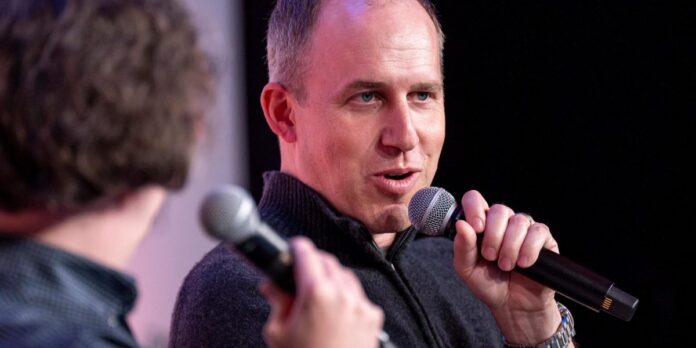OpenAI chairman Bret Taylor is not naive to the potentially mammoth consequences of a tech bubble, but he said the prospect isn’t without its benefits. The former Facebook CTO and current CEO of AI business platform Sierra shares the opinion of OpenAI CEO Sam Altman that we’re in an AI bubble—but that’s not entirely a bad thing.
“It is both true that AI will transform the economy, and I think it will, like the internet, create huge amounts of economic value in the future,” Taylor said in the most recent episode of The Verge’s “Decoder” podcast. “I think we’re also in a bubble, and a lot of people will lose a lot of money. I think both are absolutely true at the same time, and there’s a lot of historical precedent for both of those things being true at the same time.”
Altman echoed Taylor’s sentiments last month, warning of big winners and big losers from an AI hype cycle.
“Someone is going to lose a phenomenal amount of money,” Altman said during a dinner for journalists, The Verge reported. “We don’t know who. And a lot of people are going to make a phenomenal amount of money.”
Taylor and Altman join the chorus of industry giants and economists warning about how the astronomical rise of AI has led investors to overhype companies, inflating them beyond their actual worth—with significant financial consequences. Apollo Global Management chief economist Torsten Sløk warned in July that the top 10 companies in the S&P 500 are more overvalued today than they were during the dotcom era 25 years ago. Alibaba’s chair Joseph Tsai and C3.ai CEO Tom Siebel have both warned in the last year that we’re entering an AI bubble.
The fallout of the dotcom bubble burst in 2000 was weighty: In March, the NASDAQ rose to its peak of 5,048 units, only to plummet to 1,139.90 units in October, a 77% plummet. The downturn, by the time it ended in 2002, had wiped out about $5 trillion in market capitalizations.
Bubble beneficiaries
According to Taylor, it’s worth paying attention to the big winners of the dotcom era when drawing conclusions about the impact of a bubble burst and what it would mean for the tech industry.
“There’s a lot of parallels to the internet bubble,” he said.
Looking at the successful companies that emerged from the early dotcom era is evidence that just because scores of internet companies were overhyped doesn’t mean the hype wasn’t justified for others, according to Taylor. The dotcom bust had famous flops such as Pets.com, a pet-supplies retailer that went belly-up prioritizing rapid growth, and Webvan, a grocery-delivery company that filed for bankruptcy in July 2001—but it also produced Amazon and Google, which have growth to be some of the world’s largest companies, Taylor pointed out. Amazon’s share price has grown nearly 15,000% since October 2000, and Google, which was not a publicly traded company in 2000, has similarly grown, reaching a more than $2.9 trillion market cap.
Moreover, even failed companies like Webvan made their mark on the tech work, Taylor said, paving the way for companies like Instacart and DoorDash to build upon the retail delivery companies of the turn of the century.
“You start to look and you say, ‘Actually, if you look at the GDP of the world, how much has actually been created or influenced by the existence of the internet?’ One could argue that all the people in 1999 were kind of right,” he said. “It was as impactful on pretty much every measure.”
Taylor indicated there will be winners of the AI boom, but it’s difficult to say what these wins will look like. He pointed to fiber companies, many of which went under as a result of the dotcom bust, but not before making their mark on improving the speed of data. Most famously, Global Crossing, which had a value of $55 billion in its heyday, went bankrupt in 2002 after failing to find customers to make it profitable.
“Because of the amount of economic opportunity, you just end up with a ton of investors, and some companies will fail and some will succeed,” Taylor said. “If you look at the people who built out fiber in the early days of the internet, a lot of them went bankrupt, but that fiber ended up getting used, just by the next person or the private equity firm or whatever entity bought it.”
Taylor did not respond to Fortune’s request for comment.


